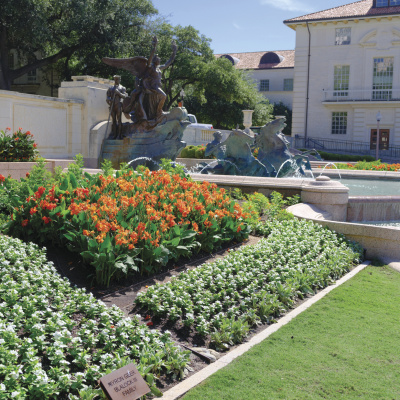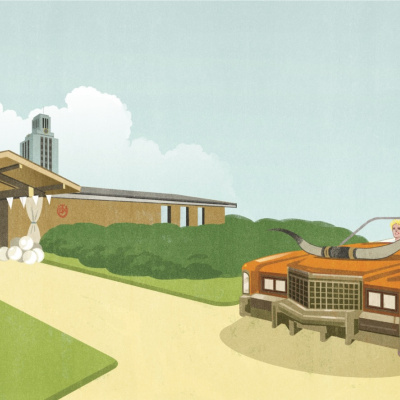Ransom Center Snags J.M. Coetzee Archive

The acquisition of Nobel laureate J. M. Coetzee’s archive by the Ransom Center is a fitting tribute to the writer’s long-standing ties to The University of Texas at Austin and, in a way, brings his relationship with the University full circle.
Coetzee enrolled in the University in 1965, and he earned his Ph.D. in English, linguistics, and Germanic languages in 1968. While at the University, he conducted research in the Ransom Center’s collections for his dissertation on the early fiction of Samuel Beckett.
In a 1984 essay for the New York Times titled “How I Learned About America—and Africa—in Texas,” Coetzee writes about working in the collections at the Ransom Center:
“In the Manuscripts Room of the library, I found the exercise books in which Samuel Beckett had written Watt on a farm in the south of France, hiding out from the Germans. I spent weeks perusing them, pondering the sketches and numbers and doodles in the margins, disconcerted to find the well-attested agony of composing a masterpiece had left no other traces than these flippancies. Was the pain perhaps all in the waiting, I asked myself, in the sitting and staring at the empty page?”
Once the Coetzee archive is cataloged, students will have access to Coetzee’s own papers for scholarly work and perhaps will explore some of these same questions about the writer’s process.
Coetzee was on campus during the Charles Whitman shooting in 1966, and in the same essay, he recalls hiding under a desk during the ordeal. He also recalls happier times on campus spent with cricket teammates and traveling to College Station to play the Aggie team, also composed mostly of students from colonial countries. Coetzee lived in Austin with his wife during those three years, and their son Nicholas was born here.

Coetzee returned to the University as a guest of the linguistics department and again in 1995 to teach students in the MFA program at the Michener Center for Writers. Student evaluations from his time at the Michener Center are included among his papers, and the anonymous responses are almost unanimous in their praise.
“John Coetzee has an astonishing mind,” wrote one student.
“I feel very fortunate to have had him as a teacher,” wrote another. “His intellect is world-class. I admire his writing as well as his teaching. He parses meaning with rather exquisite precision, displays humor, never loses the larger sense. He has high standards but was always approachable. He guided classroom discussions with a light hand—they were spontaneous but not chaotic. He was, in short, very great—interesting and interested.”
The Texas Exes awarded Coetzee the Distinguished Alumnus Award in 2004.
Coetzee returned to the University once more in May 2010 to give a talk as part of the Graduate School’s 1910 Society Lecture Series, which celebrated the 100th anniversary of the school.
In his talk, Coetzee said of his time in Austin: “My free hours I spent in the library, which I cannot praise more highly than to say it did not know all the treasures it contained."
Scholars, researchers, and students will no doubt be mining the Coetzee archive in the coming years in search of the many treasures that it contains.
This post was first published on the Ransom Center's Cultural Compass blog.
Images courtesy the Harry Ransom Center






